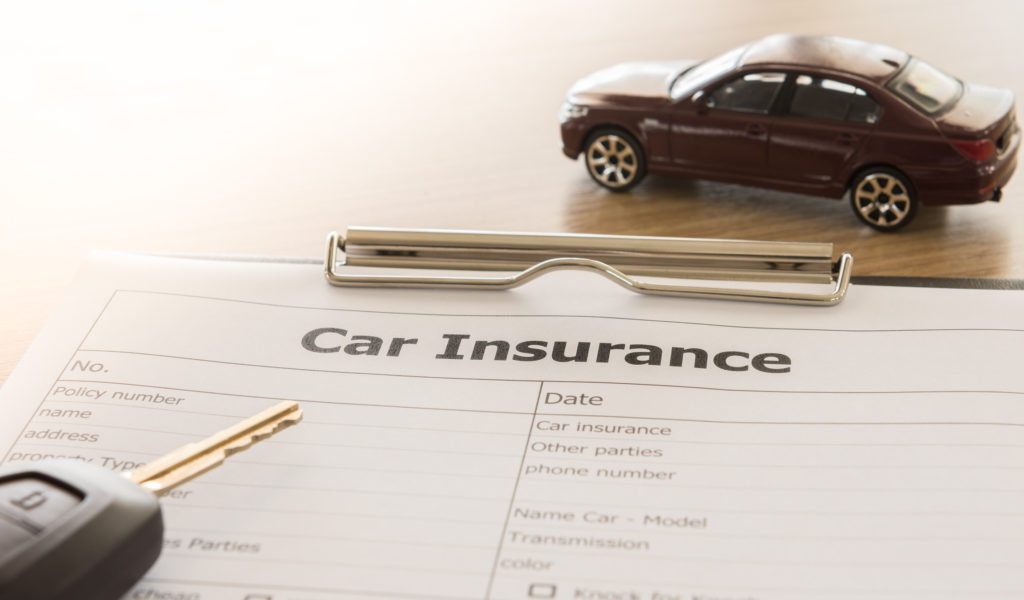
Unless it was a minor fender-bender with no discernible damage, you should inform your insurance company after an accident.
Read on to find out what to do after an accident, how to make a claim with an insurance company, what happens after you contact the insurance company, and what you should absolutely do before making a statement.
What to do after an accident
If you’ve been involved in an auto collision that resulted in damage and/or injury, call 911. The police and, if necessary, emergency medical personnel will come to the scene. The police will conduct a report, which you will need later if you file a claim. Get the police officer’s name, the report number, and a copy of the report.
Get the information from the other driver or drivers. This includes: name, address, phone number, email, insurance information, license plate number, driver’s license number, and make and model of vehicle. Also get the contact information of any passengers. Seek out witnesses, and get their names and contact information. Photograph the accident, the road conditions, and your injuries.
Seek medical care, even if you don’t feel you need it. The shock of an accident can overshadow the symptoms of conditions such as whiplash. If you do not seek medical care and later find you have injuries you wish to include in your claim, you may not be able to include these injuries.
Report the incident to your insurance company, and to the other driver’s insurance company if he or she is at least partially at fault.
You can read more about what to do after an accident in our article here.
Liability in an accident
If the accident was wholly your fault, you should contact your insurance company and file a claim under your collision coverage, if you have it. If the accident was totally or partially the fault of the other driver, you should contact both your insurance company and the other driver’s insurance company.
Arizona is what is known as a comparative negligence state. This means drivers can be deemed liable for a percentage of their responsibility for the accident. So, you might be found 30 percent to blame for the accident, and the other driver might be 70 percent at-fault. In that case, you would be entitled to receive 70 percent of the damages. These might include reimbursement for medical bills, out-of-pocket expenses such as a rental car, pain and suffering, and lost wages if you are unable to work for a time.
Filing a claim with your insurance company
When you call your insurance company to file a claim, you’ll need to give them:
• Your name and policy number.
• Your policy’s start and end date.
• The date and time of the accident.
• The names, addresses, and phone numbers of all drivers, passengers, and witnesses.
• The driver’s license number and license plate numbers for all the drivers.
Your insurance company might also ask you to make a sworn statement about the specifics of the auto accident, the vehicle damage, and your injuries. It is important to speak with an experienced personal injury attorney before you make a statement to your insurance company or the other driver’s insurance company.
What happens when you make a claim?
After you file a claim, you’ll set a process in motion:
1. A professional at the auto insurance company will be assigned to work on your claim.
2. You’ll meet with that claims worker to discuss your coverage.
3. The claims professional will inspect your car, look into evidence of injury claims, and evaluate your case. A payment may be made at this point.
4. Your case will be resolved, and any payments due to you will be made.
Can I contact my insurance company to help me get a rental car if my car is being repaired?
We have written about this topic in more detail here. But here’s the answer in a nutshell. If you need a rental car following an accident and the accident was the other driver’s fault, the other driver’s insurance company should cover your rental car.
However, if liability in the case is being debated, or if the accident was your fault, or if the other driver’s insurance company is giving you the runaround, you can contact your own insurance company. But your insurance company will pay for or reimburse your rental car only if you have rental reimbursement coverage.
Should I contact my insurance company if the at-fault driver has no insurance?
Again, we have written about this topic more in detail here. But here is the short answer. If the at-fault driver has no insurance or inadequate insurance to cover your damages, you can file a claim against your own insurance company. But you can do this only if you have uninsured and/or underinsured motorist coverage.
Clearly, dealing with auto insurance issues can be complex. If you have questions, and before you make a statement to any insurance company, consult with an experienced personal injury attorney. The Lamber-Goodnow Personal Injury Legal Team offers free consultations to accident victims. There is no obligation and no out-of-pocket cost. We get paid only if you get paid.
#KC
If I Am Driving and Get into a Car Accident, Can My Passenger Sue Me?

As with many legal questions, the answer is “yes and no.” It depends on who is at fault in the accident and your relationship to your passenger. It also depends on the particular laws of the state you were in when the crash occurred.
Passengers cannot be deemed liable for an accident. So it’s typically easier for a passenger to file a claim after an auto accident than it is for a driver. But these cases can get complicated very quickly. Let’s delve into the details of passenger injury claims.
Q: How to determine liability in a one-car accident?
A: If you were driving with a passenger and crashed your vehicle into a tree, a pole or a wall, you will likely be found liable for the accident. In this case, your passenger could file a claim against your insurance company. If the claim is approved, your insurance company would then pay the passenger damages. These could include medical bills, pain and suffering, and lost wages if he or she is unable to work. For more information on what damages and compensation an accident victim can be awarded, read our article here.
If you are found liable for the accident, your insurance premiums could go up as a result. But some insurance companies and policies offer “forgiveness” for your first accident. You will have to check with your insurance company regarding the details of your policy.
However, if you were driving safely but had to swerve quickly because an animal or a child suddenly ran into the road, you might be deemed not at fault for the accident. In this case, your passenger would likely not be able to file a claim against your insurance company.
Q: How to determine liability in a multiple-car accident?
A: If you were involved in a collision with one or more vehicles, one or more drivers will be found liable. One driver may be deemed wholly at fault. Or, because Arizona is a comparative fault state, drivers can be found liable for a percentage of the accident. For example, one driver may be 60 percent liable and the other driver 40 percent to blame.
Your passenger can file a claim against the at-fault driver or drivers. He or she could recoup damages from both drivers’ insurance companies according to their degree of fault. So, if you were deemed 20 percent liable, your insurance company would pay 20 percent of the damages to the passenger. If the other driver were deemed 80 percent to blame, the other driver’s insurance company would pay 80 percent.
Determining liability in an auto accident is not easy, especially when one has to put a percentage on it. Each driver’s insurance company will naturally try to place less blame on their own driver. This can result in time-consuming and nerve-wracking negotiations. It’s smart in situations like these to consult with an experienced personal injury lawyer.
An attorney can investigate the accident using police reports, accident recreation techniques, photographs, eye-witness testimony, video surveillance footage, the vehicle’s black box, medical bills, and more. He or she will take care of all communication and negotiation with the insurance company or companies.
The Lamber-Goodnow Personal Injury Legal Team offers free consultations for people involved in auto accidents. There is no obligation or up-front costs. We get paid only if you get paid.
Q: When your passenger is a family member or friend?
A: If your passenger is a spouse or family member and you live with them, they typically cannot file a claim against your insurance policy. This is especially true if the vehicle is jointly owned by you and the passenger. Most states consider a married couple to be, essentially, one entity.
Auto insurance policies normally do not allow spouses or other household members to make a claim against your own liability policy in the event of an accident. Part of the reasoning behind this to prevent fraud. If it were possible for a wife to sue her husband following an accident, a couple could collude to get into an accident merely to collect money from the insurance company.
There can be exceptions to this rule depending on which state the accident occurred in and the specifics of your insurance policy. If you find yourself in a legal gray area, consult with an experienced personal injury attorney.
